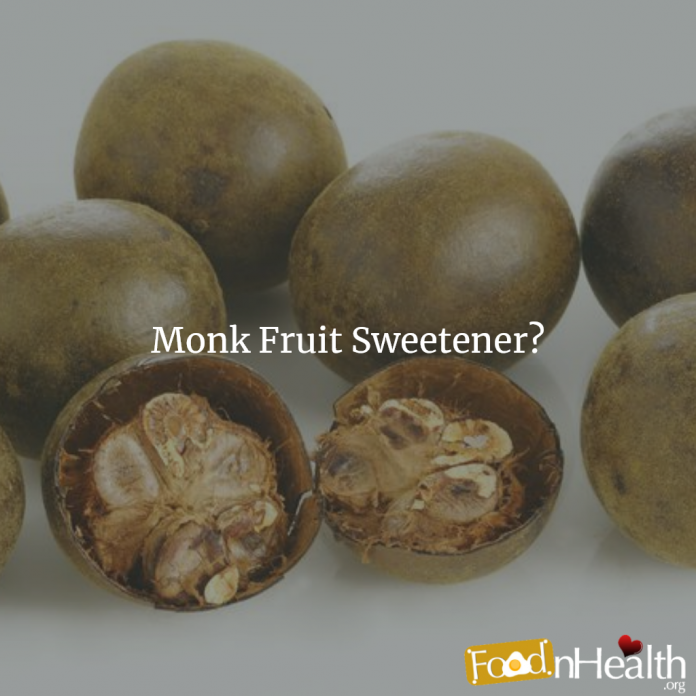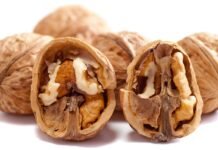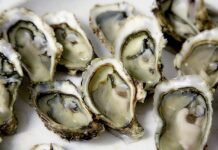Sugar is a product that we use more or less all the time in our day to day lives. Be it the most basic tea or the effort consuming brownies– we just cannot do without the presence of sweetness in our meals. However, this pleasant, sweet taste comes at the cost of a bunch of health hazards that occur in default with the use of sugar.
Of the commonly known consequences of consumption of sugar, one of the most known is diabetes that includes very high or fluctuating blood sugar levels and other clinical symptoms. These symptoms might, in turn, cause further damage to the kidneys, eyes and the general immune system of the individual suffering from it.
The story does not end there, heavy consumption of sugar might further harm the cardiac health of the individual, causing hypertension and other disorders.
What is the Monk Fruit sweetener?
The monk fruit is a green colored fruit with a fibrous cover and soft, sectioned interior. This fruit becomes a shade of dirty beige color when ripe. The sweetener is prepared from the extract of the dried fruit. It has a course sugary taste and a slight aftertaste.
According to KetoVale.com, the most common form of monk fruit sweetener is powder. Monk fruit sweetener is almost 200 times sweeter than the table sugar that we often use in our daily lives. That is, one-fourth of a teaspoon of monk fruit sweetener will do the job of two spoons of sugar. Isn’t that great?
A sweet boon for the diabetics
Although this fruit reportedly has a significantly sweet taste, studies demonstrate the absence of both polysaccharides monosaccharides in its chemical composition. The monk fruit owes its flavor to the presence of mogrosides, which is a non-nutritive compound. This means that mogrosides have no calories or carbohydrates present in them. Thus, the consumption of this sweetener will not have any effects on the blood sugar levels of an individual. This property makes it a very favorable substitute for sugar for people with diabetes.
However, one needs to be careful if they are purchasing packaged monk fruit products from the market. These products might have added sugar, calories and preservatives, thus negating the whole cause of its use.
There’s no need to boycott sweets to get into shape
As stated earlier, the absence of saccharides in this fruit makes it free of carbohydrates or calories. This can prove to be a revolutionary addition to the fitness industry or for anybody who’s health conscious. The sweetness of monk fruit allows one of cut off the use of regular table sugar from meals without affecting the taste of the food item.
However, make sure that you buy your monk fruit sweetener from a reputed store in order to avoid adulteration in the quality of the product. And also remember to not go for cheat days too often just because sweet no more counts as calories. The treats that you might be planning to eat just might have chunks of butter or chocolate which definitely will spoil your fitness routine.
Antioxidant and anti-inflammatory properties of monk fruit
Among the many health benefits of monk fruit, yet another critical point includes the antioxidant and anti-inflammatory properties of the fruit. The presence of mogrosides makes it an excellent item for the prevention of various types of cancer, stabilization of blood sugar levels, reduction of radical damage of body organs and so on. Hot beverages made with this fruit extract have been popular for relieving sore throats and itchiness.
Easy use
Monk fruit can be easily used in place of sugar for daily consumption without a problem. When raw, a cup of monk fruit sweetener will have the same work as a cup of sugar. However, when the dried extract is used only one-fourth of a cup is required for the same quantity as one whole cup of sugar.
What does the FDA say about monk fruit
The Food and Drug Administration, commonly known as (FDA), has labeled monk fruit sweetener “Generally Recognized As Safe” (GRAS), as this product is usually safe for human consumption. However, this fruit and its sweetener are relatively new to the global market. On the basis of short term use, no complications regarding its intake have been reported even in case of pregnant women, children and the older population.
Moreover, this product remains a subject of intrinsic research and study in the coming years before it can stand fully ready to substitute the use of sugar in the daily lives of ordinary people.
While on the one hand, most artificial sweeteners that are available in the market are a cause of gas, abdominal bloating and allergic reactions, monk fruit sweeteners have not been known to produce any significant complications. Nevertheless, some of the demerits of the product include its rare availability in pure form in the local markets. Some people may also tend not to like the aftertaste of this sweetener.
Monk fruit belongs to the gourd family with its likes including– pumpkin, squash, etc. Therefore, it is not recommended for the people who have an allergic tendency towards these. The known allergic reactions to monk fruits include rashes, difficulty in breathing, dizziness and rapidly falling pulse rate, vomiting, and wheezing.
Thus, if you’re planning to replace your intake of regular sugar with monk fruit sweetener, make sure that you have your allergy tests done for the likes of gourd family and you’re good to go.
Ways to use monk fruit sweetener
Other than the slight chances of developing allergies, monk fruit is reportedly safe for regular consumption. It can be used in all places instead of sugar– in beverages like tea, coffee, iced tea. Monk fruit sweeteners can also be used in lemonade, smoothies, and any hot cereals like oats. The list does not end there; monk fruit sweetener can replace sugar in baking too.
Whether it is brownies, carrot bread, cheese cream frosting– the wonders that this sweetener can do are unparalleled. Monk fruit sweetener can thus be substituted for regular sugar without a doubt.


























